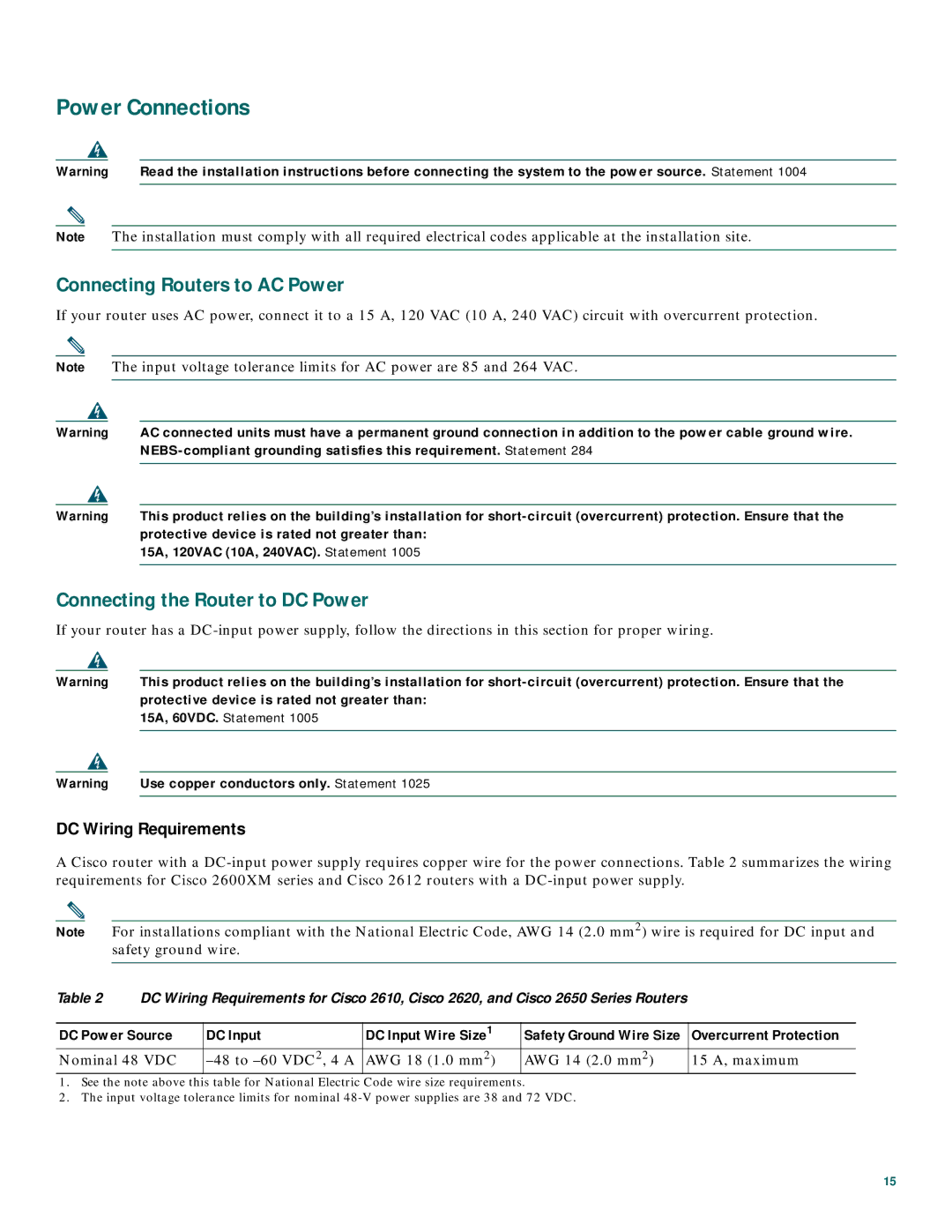
Power Connections
Warning | Read the installation instructions before connecting the system to the power source. Statement 1004 |
Note The installation must comply with all required electrical codes applicable at the installation site.
Connecting Routers to AC Power
If your router uses AC power, connect it to a 15 A, 120 VAC (10 A, 240 VAC) circuit with overcurrent protection.
Note The input voltage tolerance limits for AC power are 85 and 264 VAC.
Warning | AC connected units must have a permanent ground connection in addition to the power cable ground wire. | |
|
| |
|
|
|
|
|
|
Warning | This product relies on the building’s installation for | |
|
| protective device is rated not greater than: |
|
| 15A, 120VAC (10A, 240VAC). Statement 1005 |
|
|
|
Connecting the Router to DC Power
If your router has a
Warning | This product relies on the building’s installation for | |
|
| protective device is rated not greater than: |
|
| 15A, 60VDC. Statement 1005 |
|
|
|
|
|
|
Warning | Use copper conductors only. Statement 1025 | |
|
|
|
DC Wiring Requirements
A Cisco router with a
Note For installations compliant with the National Electric Code, AWG 14 (2.0 mm2) wire is required for DC input and safety ground wire.
Table 2 | DC Wiring Requirements for Cisco 2610, Cisco 2620, and Cisco 2650 Series Routers |
| |||
|
|
|
|
| |
DC Power Source | DC Input | DC Input Wire Size1 | Safety Ground Wire Size | Overcurrent Protection | |
Nominal 48 VDC | AWG 18 (1.0 mm2) | AWG 14 (2.0 mm2) | 15 A, maximum | ||
1.See the note above this table for National Electric Code wire size requirements.
2.The input voltage tolerance limits for nominal
15
